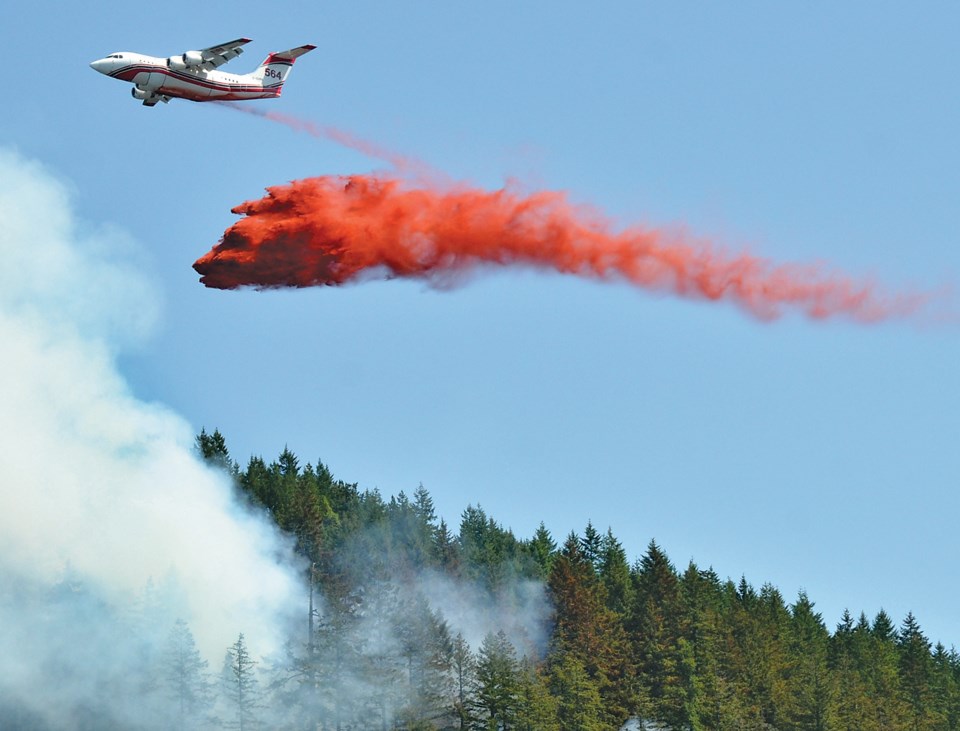After a massive effort by local, regional and provincial crews, a wildfire burning between Horseshoe Bay and Whyte Lake is now mostly out. We are tremendously grateful for the hard work and expertise of the firefighters and pilots who brought this to a quick end.
Climate change means forest fires on the North Shore are becoming a yearly occurrence. They’re coming earlier, staying later, spreading faster and are getting more difficult to put out. We’ve escaped major damage through every fire recent season, but it feels like our luck is rapidly running out.
There’s no question that the Horseshoe Bay fire was a human-caused blaze. This time of year, almost all of them are. Flicking a lit cigarette or any other smoking material, or lighting a campfire where one is prohibited should be as unthinkable and stigmatized and drunk driving. But even if we can bring about a cultural shift in preventing fires like Smokey Bear would want, we can never reduce the risk to zero.
Already 75,000 square kilometres of Canada has been burned in fires this year - a new record, and it’s not even July. These smoke signals portend much worse things to come.
Enacting policies that bring our country and communities to net-zero carbon emissions should be done every bit as urgently as dousing the flames above Horseshoe Bay.
When the last embers have smouldered out, the heat should still be felt by those in power.
What are your thoughts? Send us a letter via email by clicking here or post a comment below.



